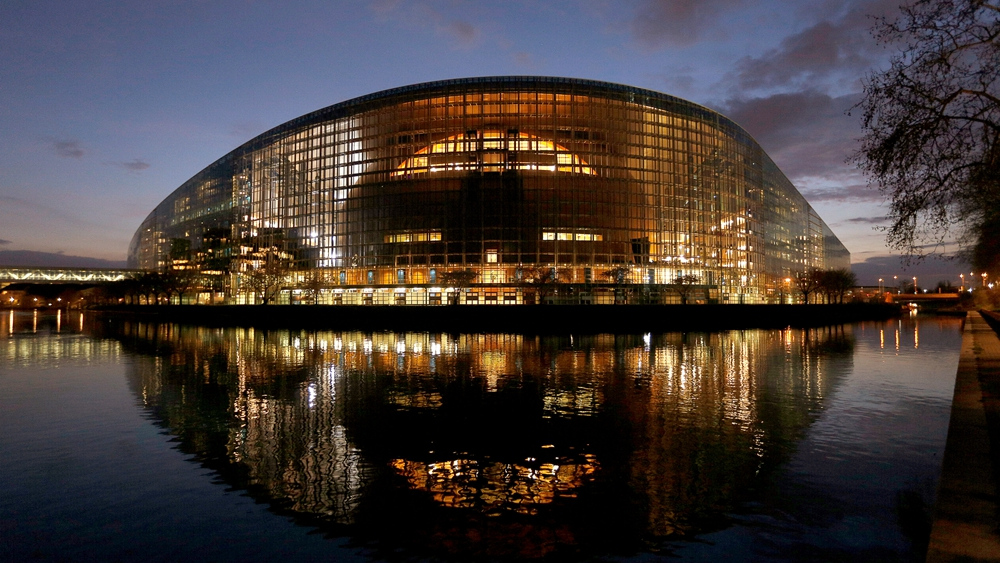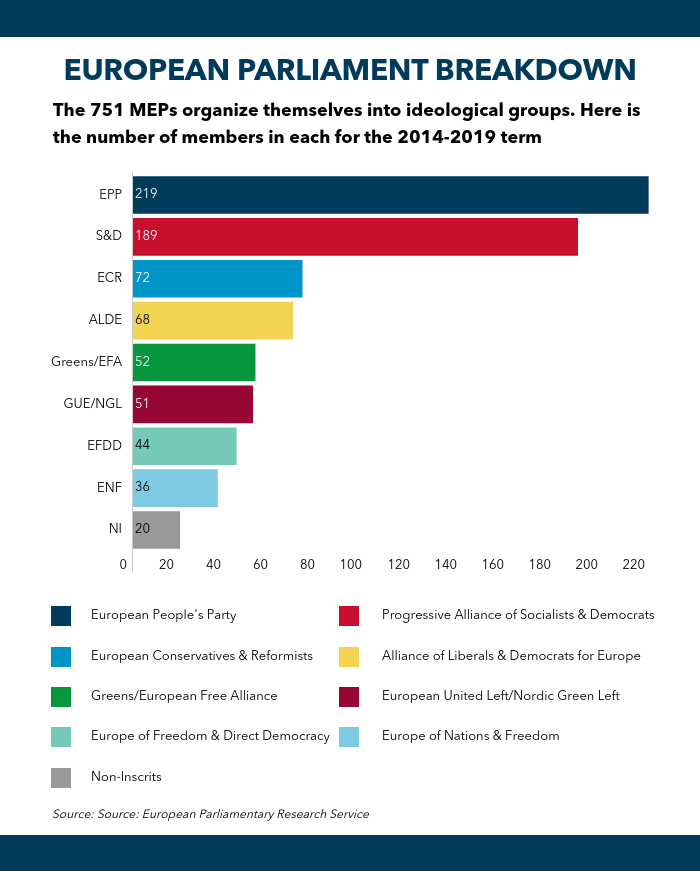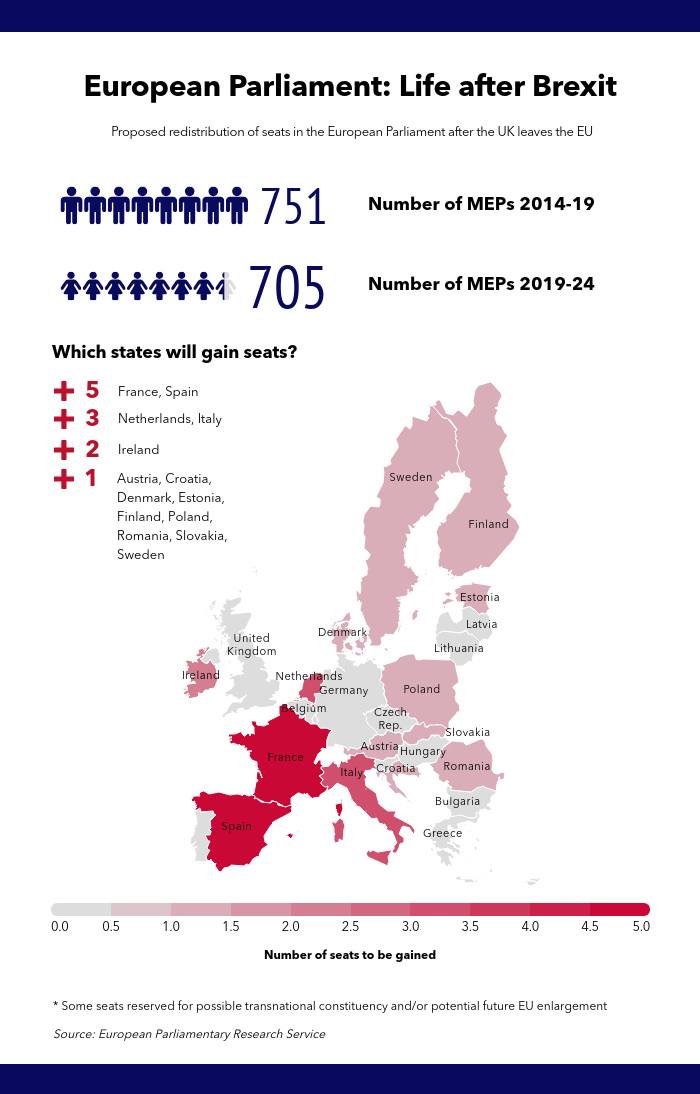
Europe
13:27, 22-Apr-2019
A simple guide to the European Parliament elections
Updated
15:21, 22-Apr-2019
Alex Hunt

With Brexit still unresolved and the trend moving away from centrist politics, the upcoming votes hold plenty of intrigue across the bloc and the world.
When are the elections?
People across the European Union (EU) will vote between Thursday May 23 and Sunday May 26 – it doesn't all happen on one day because different countries like to hold elections on different days. However, the results are not announced until the Sunday evening.
What are people voting for?
The votes are to elect 751 Members of the European Parliament (MEPs). Each of the 28 EU member countries has a certain number of MEPs, based on the size of their population.
At what age can you vote?
You can vote in Austria from the age of 16. But in all the other EU countries you have to be 18. There is no maximum age, and all countries operate with a secret ballot.
What powers does the European Parliament have?
The European Parliament was once seen as rather toothless, but it has been gradually getting more power, providing increasing democratic scrutiny of EU institutions and budgets since elections to it began in 1979. The EU has a “co-decision” structure through which MEPs negotiate legislation with the European Council, which is made up of national governments' ministers. The European Parliament's members now decide who becomes the president of the European Commission. They will also have to vote in favor of any Brexit deal for it to happen.
Read more: The EU guide to European Parliament's powers
How often are there elections?
European elections are held every five years. The voting system varies by country, but all use a form of proportional representation, so the number of MEPs roughly reflects the share of the vote gained by parties.
What parties can people vote for?
Generally, people in each country have the same choice of parties as during their national and local elections. There have been attempts to establish Europe-wide parties but that has yet to take off.
So how does that work in the Parliament?
MEPs organize themselves according to their political views rather than nationality in the European Parliament – so, for example, a British Green MEP sits with other countries' Green MEPs. To form a grouping there must be at least 25 MEPs, from at least seven different countries. Not all MEPs join groups, but they are encouraged to because there is more funding, and places on committees, available to qualifying groups.
Here are the eight groupings in the European Parliament now:
· European People's Party (Christian Democrats) (EPP),
· Progressive Alliance of Socialists and Democrats
· European Conservatives and Reformists Group
· Alliance of Liberals and Democrats for Europe (ALDE)
· Confederal Group of the European United Left
· Group of the Greens/European Free Alliance (Greens/EFA)
· Europe of Freedom and Direct Democracy Group
· Europe of Nations and Freedom
What about the next European Commission president?
Each of the party groupings has chosen its preferred candidate to succeed Jean-Claude Juncker as European Commission president. This means the candidate backed by whichever grouping has the most members after the election would be expected to get the job.
What is the current balance of the European Parliament?

European parliament breakdown. /CGTN Photo
European parliament breakdown. /CGTN Photo
What are the big issues likely to be?
According to Eurobarometer's latest survey, when asked what were the two most important issues facing the EU at the moment, respondents came up with the following six, ranked here with the most popular response at number one:
1. Immigration
2. Terrorism
3. Member states' public finances
4. The current economic situation
5. Climate change
6. Unemployment
Is the UK going to be taking part in the elections?
At the moment it looks like the UK will take part in the elections because Brexit day has been put back to October 31. However, that might change if a Brexit deal is done before the European elections happen on May 23. If the UK does not take part, the number of MEPs in the European Parliament will fall from 751 to 705.

European Parliament: Life after Brexit. /CGTN Photo
European Parliament: Life after Brexit. /CGTN Photo
What do experts say to watch out for?
Because the elections are conducted using proportional representation, and because the European Parliament does not have the same direct power over voters' lives as their national governments, there is often said to be an element of protest voting in European elections. Much attention will be on whether the long-running center-Right/center-Left majority will remain, or whether the trend in other elections since the last European elections of 2014 – away from centrists – is repeated. And whether or not Brexit has happened, experts will be keeping a close eye on how anti-EU parties perform.
And finally… where is the European Parliament?
This is not as straightforward a question as you might think. The official home for the European Parliament is in Strasbourg, France, where it meets for 12 of its four-day sessions each year. But the European Parliament also meets in Brussels for shorter, additional sessions and committees – so being an MEP guarantees plenty of travel.
(Cover: The European Parliament building in Strasbourg, France. /Reuters Photo. Graphics by Patrick O'Donnell)

SITEMAP
Copyright © 2018 CGTN. Beijing ICP prepared NO.16065310-3
Copyright © 2018 CGTN. Beijing ICP prepared NO.16065310-3